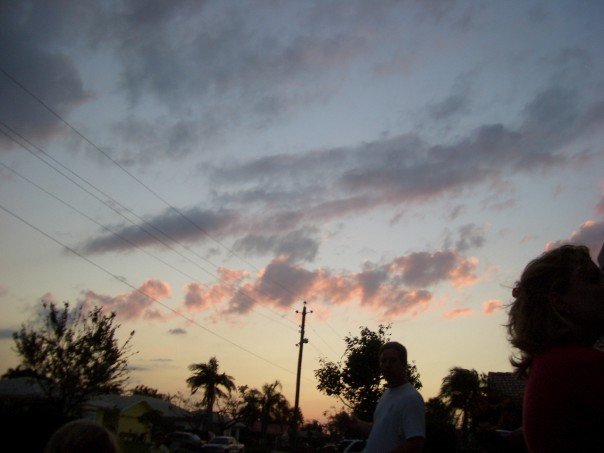Well, our first big storm came and went, and while it didn't come near to our county, it's a been a very good reminder that we need to make sure we're prepared for this type of weather event. It may sound weird, but growing up we looked forward to hurricanes- we were lucky enough to have solid housing and be far from the evacuation zone. Preparing involved making sure you had what you needed to complete any school assignments and helping my parents put up the shutters around the house. As an adult, of course things aren't so simple. Here's a list of what we keep in the house to prepare for storms.
- first aid kid. My brother actually got this kit not long after the start of the pandemic, and then gifted it to us when we moved (thanks, Luke!) At minimum it should include a few different types of wound dressings (the Red Cross recommends this list), antibiotic ointment (avoid Neosporin as it tends to cause skin reactions,) and some tweezers. I'd also include any medications anyone in the household takes regularly, plus Acetaminophen, Ibuprofen, and Cetirizine.
- food. It's not uncommon for hurricanes to cause power outages and limit access to drinkable water, so you'll want some cans and packets or non-perishable food that's easy to assemble and eat. As Trader Joe's fans, we just stocked up on some packets and cans from their nonperishable aisle, but you can also add things like ramen, snack bars, fruit leathers- pretty much anything that requires as little prep as possible. We have a gas camping grill so we just make sure we have a propane tank to heat stuff up on if needed, ideally long before the hurricane panic buying starts. Another note: go through your supplies annually to cycle out anything that's coming up on expiration dates and replenish with newer items.
- water. As above. You generally want one gallon per person and pet per day in case the water is not drinkable for an extended period. Obviously no one knows how long the power will be out (the longest power outage we experienced was two weeks!) but 3 days is a good start. You can either buy and store gallons of water, or fill containers in your home before the storm hits. There's also purification tablets you can buy and use in a pinch.
- flashlights and batteries. As a kid, hurricane night meant going to bed with a flashlight on my nightstand in case the power went out (as it often does in hurricanes.) We upgraded to headlamps, and use our camping lantern to as needed. Make sure you have the right unexpired batteries for whatever lighting you're using as well.
- Important documents. Less of a hurricane kit thing than a life kit thing. Many disaster relief organizations will recommend keeping important documents such as passports, birth certificates and relevant medical information in a single place in the home. Fireproof safes are expensive, but you could also zip them into a water proof bag to keep them dry in the event of flooding.
- The rest of the stuff. The list can get very long very quickly and depends a lot on individual circumstances. If you are at risk of evacuating having a change of clothes or two packed in a designated spot is also a good idea, as well as supplies, documents and food for pets if you have them. The CDC also recommends keeping a fire extinguisher in the home (which should honestly be an item every household has in working condition.)
Other things to note:
- follow official guidelines. The national weather service is a great resource, but please check in and follow along on local official disaster preparedness pages. If you are being told to evacuate PLEASE evacuate. Not only for your own safety - you are endangering others' lives if you get trapped in an unsafe area.
- Hurricane season runs from June to November, but in general it's a good idea to be prepared year round, as you can use this kind of kit for other emergencies as well. It's also a good idea to check in on everything once a year and make sure replace expired or broken items.
- if you have any medical devices that require power to run, make sure you know where you can go if you lose power. This was something that happened in Hurricane Maria in Puerto Rico that led to some pretty tragic outcomes. It could be as simple as figuring out if any local friends or family have a generator or solar and battery system you can hunker down with or the nearest hospital that operates as a shelter. Many folks will not have to worry about this but if you use a nebulizer or other respiratory machines or rely on dialysis regularly it's important to look into this.
So that's pretty much it!. What do you think? Anything you would add?
PS. The CDC has some really great articles on this stuff that you can find on their website, linked here


No comments:
Post a Comment